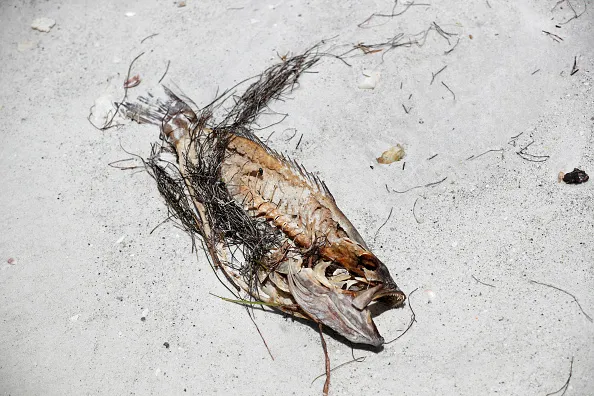Red Tide Hits Vanderbilt Beach: What You Need to Know
Heads up! There’s a red tide near Vanderbilt Beach, Collier County, and it’s causing some serious health concerns. On December 16, 2024, officials confirmed the presence of this harmful algae bloom in the waters. The Florida Department of Health (DOH) is advising everyone to proceed with caution, especially if you’re out near the beach.
If you’re planning to visit the area, here are a few things you should keep in mind. First off, stay out of the water and don’t swim or wade in it. Red tide can irritate your skin, cause rashes, and make your eyes burn. If you’ve been in contact with it, wash up with soap and fresh water right away, especially if your skin tends to react.
If you’ve got a history of respiratory issues, you might want to steer clear of this spot entirely. The toxins in red tide can make it tough to breathe, and it can be harmful even just by inhaling the air.

Red Tide Precautions:
For those living near the beach, you should keep your windows closed and run the AC. Make sure the filter is clean. Nobody wants to breathe in any extra toxins.
Also, don’t go eating any shellfish or picking up dead fish from the area. If you’re a fan of fishing, it’s safe to eat finfish, as long as you fillet it and discard the guts. And please, don’t let your pets get in the water, red tide can cause serious issues for them too.
So what exactly is red tide? It’s a bloom of algae that’s triggered by high levels of a tiny organism called Karenia brevis. When it blooms, the water can turn a reddish-brown color, and the algae release neurotoxins that can affect humans, animals, and marine life. The toxins can even make their way into the air when the wind kicks up.
Fish Kills: Dead, diseased, or abnormally behaving fish or wildlife should be reported to the Florida Fish and Wildlife Conservation Commission online or at 800-636-0511.
To hear a recording about red tide conditions throughout the state, call the toll-free hotline at
866-300-9399. If you want updates on the situation or need more info, check out Protecting Florida Together, or call the DOH at 239-252-8200. Stay safe out there.








